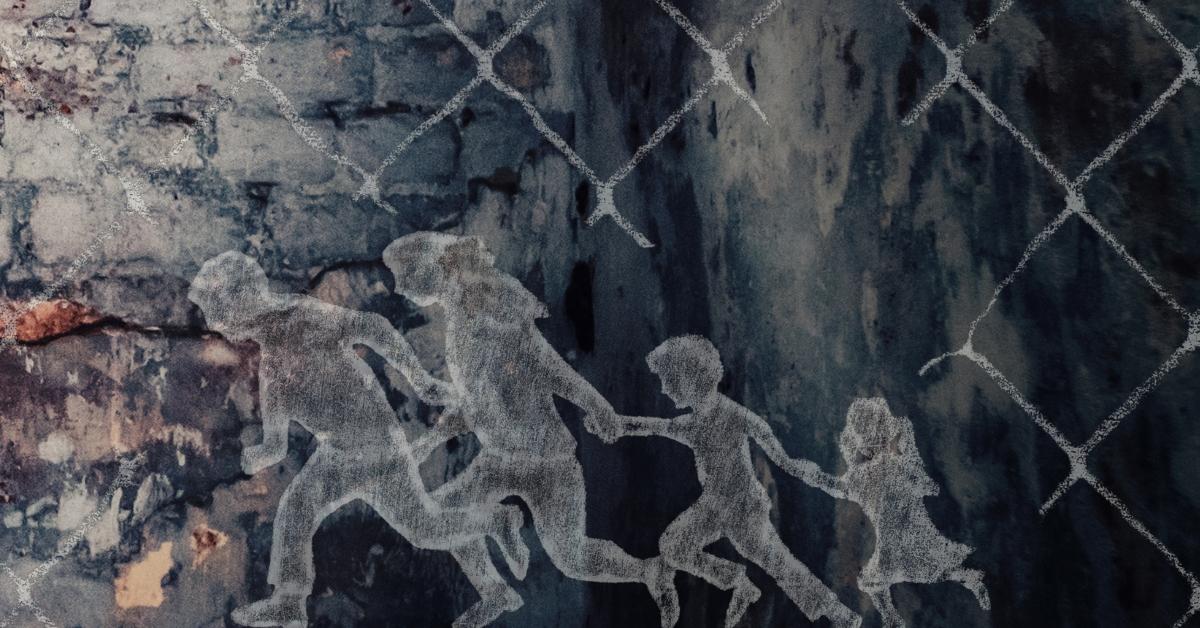
Seeking sanctuary, facing scrutiny: Why India must revisit its approach to the displaced 75 years since the Constitution, India still lacks a refugee law aligned with international standards—and hasn’t ratified the 1951 Refugee Convention
11, Jun 2025 | A Legal Researcher
A Nation at the crossroads
The relentless surge of global displacement, driven by conflict, persecution, and instability, presents a profound challenge to nations worldwide. India, situated in a volatile geopolitical landscape, inevitably finds itself at the crossroads of these human flows. Historically, the nation has welcomed various communities fleeing distress, from Sri Lankan Tamils and Tibetans to, more recently, Rohingyas from Myanmar and Afghans. As India’s economic and political stature ascends on the global stage, its stance on humanitarian issues, particularly its treatment of those seeking refuge, comes under sharper focus. This growing influence carries an implicit expectation of heightened responsibility, yet recent judicial pronouncements and policy directions suggest a potential divergence from its traditionally magnanimous approach, creating a palpable tension between its global aspirations and its actions on the ground.
Previously, in Part 1 of this explainer which may be read here, the legal framework surrounding the deportation policy was discussed. In this part, it is argued that India’s response to foreign nationals seeking refuge or settlement must evolve beyond mere dismissal or chiding, especially when profound humanitarian and civilisational values are at stake. A more nuanced, principled, and empathetic approach is not only a moral imperative but also a strategic necessity for a nation aspiring to global leadership.
Two recent Supreme Court cases serve as critical prisms through which to examine this evolving landscape: the first, involving a Sri Lankan national whose plea to settle in India was rejected with the stark admonition that the country, with its vast population, cannot be a “dharamshala“ (a charitable shelter) for all; and the second, Mohd. Ismail v. Union of India, where the Court declined to grant interim relief to halt the potential deportation of Rohingya refugees despite grave concerns about their safety back in Myanmaar. These judicial decisions are not isolated events; rather, they may act as barometers, reflecting and perhaps legitimizing a broader national mood and policy direction that increasingly prioritizes security and resource arguments, sometimes at the significant cost of humanitarian principles and India’s long-cherished civilisational ethos.
The echo of “Dharamshala“: When Doors Seem to Close – the Sri Lankan national’s plea
The case of a Sri Lankan Tamil national, Subaskaran, starkly illustrates the tightening approach towards individuals seeking to remain in India on humanitarian grounds, particularly those with a security-related past. Arrested in 2015 for links with the Liberation Tigers of Tamil Eelam (LTTE) and subsequently convicted under the Unlawful Activities (Prevention) Act (UAPA), his initial ten-year sentence was reduced by the Madras High Court in 2022 to seven years. Upon completion of his prison term, he was ordered to stay in a Tamil refugee camp pending deportation. Subaskaran’s plea to the Supreme Court to settle in India was rooted in compelling personal circumstances: his wife and children were already settled in the country, his wife was seriously ill, and his son suffered from a congenital heart defect. Crucially, he also expressed profound fears of arrest, torture, or worse if deported to Sri Lanka due to his past LTTE affiliation. This case thus pitted an individual’s dire humanitarian needs and fears of persecution against the state’s national security concerns, even after the individual had served his judicially mandated sentence.
The Supreme Court’s response was unequivocal. A bench comprising Justices Dipankar Datta and K Vinod Chandran dismissed the plea, with bench famously questioning, “Is India a dharamshala to host refugees from all over the world? We are struggling with a 140 crore population. India is not a dharamshala to entertain foreign nationals from all over”. When counsel reiterated fears of persecution in Sri Lanka, the bench’s stark suggestion was that he could “move to some other country“. The “dharamshala” comment, emanating from the nation’s apex court, carries significant weight. It frames those seeking refuge primarily as a burden on national resources and population, a narrative that can easily overshadow if not trivialise individual humanitarian claims and the complexities of forced displacement. Such judicial rhetoric risks normalising a more restrictive and less empathetic public and administrative posture towards all foreigners seeking sanctuary, irrespective of their individual circumstances or the historical context of their displacement.
The ruling underscores an increasingly hard-line stance, prioritising “national security” and resource constraints over compelling individual humanitarian concerns, even when familial ties to India are established and credible threats in the country of origin are alleged. This is particularly striking given that the petitioner had already served a significant sentence under a stringent anti-terror law. Denying him the possibility of settlement with his family, despite fears of persecution, can be perceived as a form of continued jeopardy, extending beyond the judicial sentence. The “dharamshala” analogy, while perhaps intended to highlight population pressures, risks oversimplifying the multifaceted nature of refugee situations. It also appears to disregard the nuanced historical context of Eelam Tamil refugees in India, many of whom share deep cultural, linguistic, and ethnic bonds, particularly with Tamil Nadu, a state that has historically provided considerable support and shelter to this community.
The Rohingya Plight: A test of constitutional empathy – Mohd. Ismail v. Union of India
The plight of the Rohingya Muslims, fleeing persecution in Myanmar, presents another critical juncture for India’s humanitarian commitments. In Mohammad Ismail v. Union of India (2025), the Supreme Court refused to grant interim relief to halt the future deportation of Rohingyas from India. The petitioners had made grave allegations, including the forcible deportation of 43 Rohingyas – among them women, children, the elderly, and individuals with severe health conditions – claiming they were abandoned in international waters near Myanmar after being detained under the pretext of biometric data collection. They pointed out that the United Nations High Commissioner for Refugees (UNHCR) and the International Court of Justice have recognised Rohingyas as refugees facing persecution. This case directly tests India’s adherence to the principle of non-refoulement – the customary international law principle prohibiting the return of refugees to territories where their lives or freedom would be threatened.
The Supreme Court’s response to these serious allegations was marked by pronounced scepticism. The bench, including Justice Surya Kant, characterised the petitioners’ claims as “fanciful ideas” and “vague, evasive, and sweeping statements” that lacked “prima facie material”. The Court questioned the authenticity of the claims, including how a Delhi-based petitioner could verify events allegedly occurring in remote maritime regions. When references were made to UN reports on the matter, the Court retorted, “People sitting outside cannot challenge our sovereignty”. This assertion of national sovereignty, while a fundamental tenet of international law, becomes problematic when used to deflect credible concerns raised by international human rights bodies regarding potential violations. It risks fostering an insular approach to international human rights obligations, potentially diminishing India’s stature as a responsible global actor. The Court reiterated its earlier stance that the right to residence is exclusive to Indian citizens and that foreigners found to be in the country illegally would have to be deported. The demand for “prima facie material” from petitioners alleging clandestine state actions against a highly vulnerable and marginalized group like the Rohingyas places an almost insurmountable evidentiary burden upon them. It is exceedingly difficult for individuals fearing for their lives, often in hiding or lacking resources, to procure court-admissible evidence of state-led covert operations, potentially weakening judicial review as a safeguard for fundamental rights in such contexts.
This judicial stance has drawn criticism, with some legal analysts describing the order in Mohammad Ismail as “peculiar” and reflecting a “dubious understanding” of domestic and international refugee protection, particularly when contrasted with the Supreme Court’s own history of progressive interpretations of Article 21 (right to life and personal liberty). The refusal to grant interim relief leaves the Rohingya community in India in a precarious position, continually vulnerable to deportation despite the widely acknowledged risks they face in Myanmar. The treatment of the Rohingyas becomes a litmus test for India’s humanitarian commitments, especially when viewed alongside policies like the Citizenship Amendment Act (CAA), which offers a path to citizenship for specific non-Muslim religious minorities from neighbouring countries, explicitly excluding Muslim refugees like the Rohingya.
Whispers of a civilisational ethos: India’s legacy of refuge
India possesses a long and often celebrated history of providing sanctuary to those fleeing persecution and violence. This tradition of offering refuge to diverse communities – including Jews, Parsis, Tibetans, nearly 10 million Bangladeshis during the 1971 liberation war, and numerous Sri Lankan Tamils – is deeply embedded in the nation’s cultural fabric. This historical generosity, rooted in ancient traditions of compassion and hospitality, was often extended despite India not having a formal domestic refugee law or being a signatory to the 1951 Refugee Convention. This historical record stands as a powerful testament to India’s civilisational values and provides a benchmark against which current policies can be measured.
The recent trend of remarks and the non-transparent push-back policy adopted in Assam (this guise has also been largely directed at marginalised Indians), appear to strike a dissonant chord with this inclusive historical ethos. They suggest a potential shift away from a “shared burden” narrative, evident in past responses like the 1971 Bangladesh crisis, towards an “internal burden” perspective, where India’s own population and resource constraints are foregrounded as primary reasons for restricting entry or stay. While national security imperatives and the challenges posed by a population of 1.4 billion are undeniably valid concerns, the question arises whether these should entirely eclipse a deep-rooted humanitarian tradition. The selective invocation of this “civilisational ethos” also warrants scrutiny. For instance, the Citizenship Amendment Act (CAA) invokes religious persecution as a basis for offering refuge to specific non-Muslim communities from particular neighbouring countries, while other groups facing well-documented persecution, such as the Rohingya Muslims, and are met with a markedly different, more restrictive standard. This inconsistency suggests that the “civilisational ethos” might sometimes be instrumentalised or narrowly defined to align with specific political or ideological agendas, rather than being applied as a universal principle of humanitarianism, potentially leading to perceptions of discrimination.
The ‘Vishwa Guru’ paradox: Moral costs of a narrow vision
India’s contemporary aspiration to be recognised as a ‘Vishwa Guru’ – a world teacher or global leader – projects the nation as a source of guiding norms and principles for international relations. This ambition is often accompanied by invocations of ‘Vasudhaiva Kutumbakam’ (the world is one family), an ancient Sanskrit phrase symbolizing universal brotherhood and global unity. However, these lofty ideals stand in stark contrast to restrictive or dismissive refugee policies. Reports of “push-in” operations, involving the forcible expulsion of alleged illegal migrants into neighbouring countries without due process, are particularly jarring. Such actions are inhumane, unlawful, and clear violations of international norms, create a significant credibility gap for a nation seeking moral leadership. The ‘Vishwa Guru’ aspiration, while intended to project India’s normative power, inherently subjects the nation to a higher degree of scrutiny. If a country claims moral leadership, its actions, especially concerning human rights and humanitarian issues, will be judged more stringently against its proclaimed ideals. Inconsistencies between proclaimed values and actual policies can easily lead to accusations of hypocrisy, thereby diminishing the very soft power the ‘Vishwa Guru’ concept seeks to enhance.
The social and moral costs of such a narrow vision are substantial. Beyond the immediate human cost for refugees denied protection – who are often condemned to live in precarity, face statelessness, or risk deportation to harm – there are broader repercussions. Such policies can erode India’s long-standing reputation as a compassionate nation and alienate international partners and neighbouring countries. Internally, if policies are perceived as selective or discriminatory, particularly on religious or ethnic lines, they risk fostering societal divisions and undermining India’s secular fabric. Furthermore, refugee policy can become entangled with geopolitical manoeuvring, where humanitarian considerations are subordinated to, or instrumentalised for, strategic foreign policy objectives, as hinted in discussions about “push-in” tactics being linked to regional power dynamics. This fundamentally taints the moral basis of any ‘Vishwa Guru’ claim, as true leadership should be rooted in consistent principles, not mere expediency. The moral cost is therefore not just external, in terms of reputation, but also internal, impacting societal values and the ethical foundation of governance.
Constitutional ideals vs. ground realities: Soft power at stake
The Indian Constitution provides a robust framework of rights that, in principle, extends significant protections to non-citizens. Article 21, guaranteeing the Right to Life and Personal Liberty, applies to all persons within India, not just citizens, and has been expansively interpreted by the judiciary to include the right to live with human dignity. Similarly, Article 14 ensures equality before the law and equal protection of the laws to any person within India’s territory. Furthermore, the principle of non-refoulement, though India is not a signatory to the 1951 Refugee Convention, is considered by many legal scholars and has been acknowledged in some court judgments as part of customary international law, potentially flowing from the obligations under Article 21. These constitutional and international legal principles offer a strong foundation for a more humane and rights-respecting refugee policy.
However, a discernible gap exists between these ideals and the ground realities faced by many asylum seekers and refugees in India. The clear distinction drawn between Article 21 (right to life, applicable to all) and Article 19 (right to reside and settle, applicable only to citizens) is strictly employed to deny foreign nationals the possibility of long-term settlement, even on compelling humanitarian grounds. Without a rigorous judicial definition of what constitutes adequate procedure in the context of refugees facing potential refoulement, Article 21’s protection can be significantly weakened. The absence of a dedicated national refugee law further exacerbates this situation, leading to ad-hoc, inconsistent, and often discriminatory treatment of different refugee groups. This disconnect between constitutional promises and practical application directly impacts India’s soft power, which relies heavily on its image as a democratic nation governed by the rule of law and committed to human rights. Inconsistent application of these core values inevitably tarnishes this image.
Charting a more principled path: Balancing interests with obligations
Navigating the complexities of refugee policy requires a delicate balance. Legitimate state concerns regarding national security, resource allocation, and population density are undeniable and must be addressed. However, in an increasingly interconnected world where refugee crises are often transboundary phenomena demanding collective responsibility, these concerns cannot be the sole determinants of a nation’s approach. Ignoring humanitarian obligations carries its own strategic costs, including tarnished international relations, a loss of moral authority, and the potential for regional instability if displacement is not managed humanely and effectively. A principled refugee policy, therefore, can be viewed not just as a moral duty but as a strategic asset, enhancing soft power and building goodwill.
To forge a more empathetic, principled, and globally respected approach, several key elements are essential. Firstly, the enactment of a comprehensive National Refugee Law is paramount. Such legislation would provide a clear, rights-based domestic legal framework, distinguishing refugees from other categories of migrants and ending the current ad-hoc system that breeds inconsistency and allows for wide executive discretion. This law should align with international standards, establish fair and transparent refugee status determination (RSD) processes, and clearly define the rights and access to basic services for recognized refugees. A clear domestic law would also serve as a catalyst for more consistent judicial interpretation of constitutional rights for refugees, strengthening the rule of law.
Secondly, there must be a consistent and robust application of constitutional protections, particularly Articles 14 and 21, to all refugees, ensuring their right to life, liberty, dignity, and non-discrimination. Judicial review in cases involving the fundamental rights of vulnerable individuals must be probing and sensitive to the power imbalances inherent in such situations. Finally, India must move towards nuanced individual assessments rather than relying on broad-stroke dismissals like group-based profiling. Fair, individualised RSD processes that consider the intersectionality of vulnerabilities are crucial. Ethical RSD, as highlighted in academic discourse, requires a steadfast focus on human dignity, fairness, and transparency.
Fostering a compassionate public and official discourse is vital. This involves reframing refugees not merely as burdens but as individuals deserving of empathy and protection, and potentially, as contributors to society. Engaging civil society organisations and NGOs, which often possess valuable expertise and on-the-ground presence, in policy-making and implementation processes can also lead to more effective and humane outcomes. Many of India’s refugee influxes originate from neighbouring countries; thus, a robust domestic policy must be complemented by proactive regional diplomacy aimed at addressing the root causes of displacement and fostering regional cooperation on refugee management.
India’s choice in an emerging world order
India stands at a critical juncture where its actions towards those seeking refuge will significantly shape its international identity. The current path risks diverging sharply from India’s rich civilisational ethos of providing sanctuary, undermining its constitutional ideals of justice, equality, and fraternity, and creating a jarring paradox with its aspirations of global leadership as a ‘Vishwa Guru.’
A more nuanced, empathetic, and principled refugee policy is not an indicator of weakness but a hallmark of mature and confident leadership. It necessitates a careful balancing of genuine national security and resource concerns with fundamental humanitarian obligations and international legal principles. Such an approach, grounded in a clear domestic legal framework and a consistent application of constitutional values, would not only uphold the dignity of those fleeing persecution but also significantly strengthen India’s moral authority and soft power on the world stage. The way India treats the most vulnerable at its gates is not merely a domestic concern; it is a profound statement about its national character and its vision for its role in the 21st century. The choice is stark: to be a nation that risks being defined by dismissive rhetoric and closed doors, or one that courageously upholds its legacy of compassion and justice, thereby truly leading by example in an emerging world order that desperately needs principled humanitarian engagement.
(The author is part of the legal research team of the organisation)
Related:
India: A deep dive into the legal obligations before “deportation”
From Detention to Deportation: The mass deportations and detention crisis at Assam’s Matia centre
Restoring Citizenship, Rebuilding Lives: CJP continues its journey in Assam
Declared Foreigner, buried Indian: The tragic death of Abdul Matleb in Assam’s detention camp
SC: Only 10 deported, 33 of 63 contest foreigner status from the Matia Transit Camp, Assam










